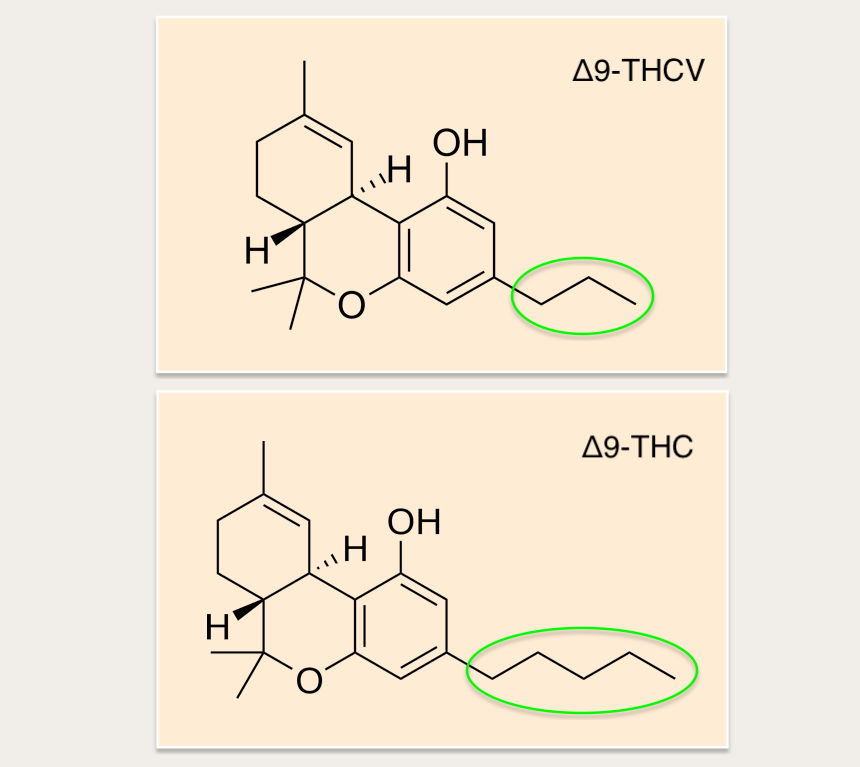Tetrahydrocannabivarin (THCV) is a cannabinoid compound found in marijuana and hemp plants. It's chemically similar to tetrahydrocannabinol (THC) however with some key differences. Here's whatever you require to understand about THCV including the risks, benefits, distinctions, and similarities with other kinds of THC and more. What Is THCV? THCV is a less common cannabinoid discovered in some strains of marijuana, particularly African sativa.
 What is THCV? Cannabis Glossary Leafly
What is THCV? Cannabis Glossary Leafly
 THCV - The Cannabinoid of the Month at Champlain Valley Dispensary
THCV - The Cannabinoid of the Month at Champlain Valley Dispensary
 What Is THCV (Tetrahydrocannabivarin)? - CNBS
What Is THCV (Tetrahydrocannabivarin)? - CNBS
THCV has a 3-carbon side chain instead of THC's 5-carbon side chain. This difference is subtle, however it has a noticeable influence on the result profile. THCV is rather psychedelic but just about and about. What Does THCV Feel Like? THCV has a strong energy-boosting component to it, which makes it especially popular among students and professional athletes.
In the United States, THCV guideline is nuanced. THCV is not a Schedule I Drug, however cannabis extracts are making it rather unclear what the federal position is on THCV. The 2018 Farm Costs specifies that hemp plants and all derivatives of the plants are legal on a federal level, so lots of companies comply with this law and still provide THCV to consumers by just extracting the substance from hemp plants.
If THCV is thought about a THC analog, it could be managed in the future by the exact same guidelines as THC under the Federal Analog Act. This act specifies that any compound that shares a comparable molecular profile as a known restricted substance it's included in the very same drug Schedule category.
What Are the Results of THCV? Proponents follow this link of THCV report that it produces an intense burst of energy and makes them feel blissful without the psychological cloudiness triggered by THC. The results are very mild compared to THC. The results are practically specifically cognitive yet in some way have really little impact on headspace.
2. THCV & Hunger Some THCV users claim that it curbs their appetite. This is a typical impact of other focus-enhancing substances too. It's as though THCV eliminates Discover more the interruption of other bodily processes (like hunger) in order to protect resources and attention to cognitive tasks instead. How Does THCV Work? Cannabinoids produce biological results in the human body by engaging with endocannabinoid receptors.
CB1 receptors are situated in the anxious system and interact with neurotransmitters in the brain to produce mind-altering results. Interaction with CB1 websites is what offers some cannabinoids like THC Home page their psychoactivity. THCV is a bit tricky to understand since it's primarily a CB1 villain, implying it has the opposite result as THC.
While researchers are still seeking to understand this process, it appears THCV is able to obstruct the effects of CB1 in low doses and promote them in high doses. CB2 receptors are found primarily in the immune system. THCV is a partial agonist of CB2, but the impacts of this partial activity aren't popular, and it seemingly has no discernible effect on THCV users' experience.
As mentioned in the previous section, THCV is a CB1 antagonist in low dosages which is the specific opposite result of delta 8 and delta 9 THC. This could suggest that THCV counteracts some of the psychedelic effects of THC. This impact might explain why individuals who utilize THCV feel so clear-headed particularly compared to the well-known "fogginess" induced by delta 9 THC.